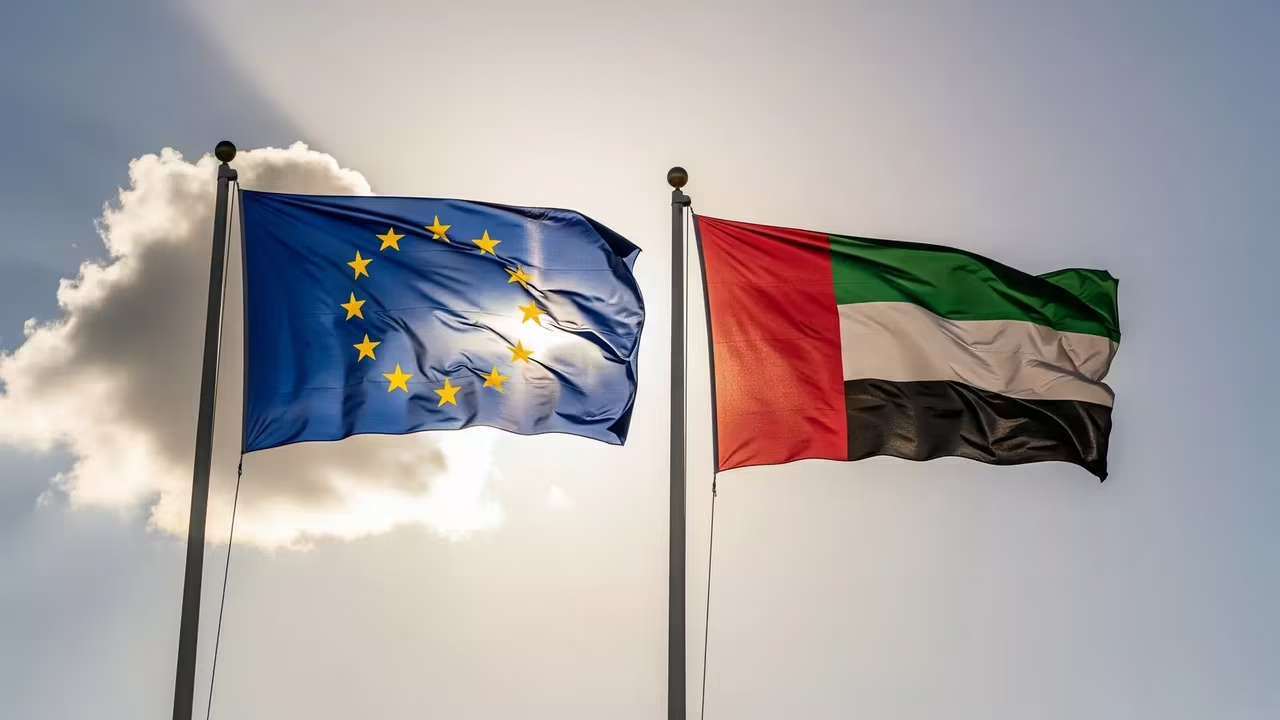The European Union has finally taken the United Arab Emirates (UAE) off its list of high-risk countries in terms of money laundering, in a long-anticipated move. It is not just good news but a green signal to easier international business, easier financial transactions and increased investor confidence in the UAE.
Intrigued, right? Let us simplify it. The who, what, when, where, why and how of it.
The Background: Why was UAE on the List?
In 2022, the UAE was included in the so-called grey list of the Financial Action Task Force (FATF). This implied that the nation had strategic weaknesses in combating money laundering and terrorist financing. This caused the EU to include the UAE on its high-risk list– complicating the lives of European banks and companies wishing to do business with entities based in the UAE.
The fact that a country is in that list does not imply that the country is guilty of illegal activities. What it implies is that global watchdogs think their systems need quick fixing.
What Changes?
June 2025: the European Commission has acknowledged the development made by the UAE. it was not a soft promise of better things. The UAE demonstrated the diligence on several levels:
- Restricted regulations on monetary transfer
- Improved observation of suspect behavior
- Large penalties on organizations which failed to comply with the anti-money laundering regulations
- Increased collaboration with other nations, as well as the EU.
Previously in February 2024, the FATF had already taken the UAE off its grey list. Therefore, it was not surprising that the EU made this decision.
Why This is a Victory in UAE
So what changes now that the UAE is no longer in the black list of the EU:
- European banks and businesses will no longer regard UAE clients as being of a high risk. This will reduce checks, paperwork and expedite processing.
- The foreign investment becomes more appealing. Investors desire secure environments. Not being on the list is an indication of improved financial controls.
- There is also increased credibility when the UAE portrays itself as a universal financial and trade center.
In a nation that is aggressively trying to establish itself as a hub of finance, fintech, tourism, and innovation, this elevation gives additional substantiation to its sales pitch to the world.
The EU List Received a Shake-up
The EU did not only update its list with the UAE. Eight countries were deletable, namely:
- Barbados
- Gibraltar
- Jamaica
- Panama
- Philippines
- Senegal
- Uganda
Meanwhile, other nations were included in the list such as Monaco, Kenya and Lebanon, which caused a few eyebrows to be raised. Particularly Monaco, which has always been regarded as the embodiment of silent prosperity and high-end banking. However, the EU singled out loopholes in the financial systems of those nations that would facilitate illicit transfer of funds.
Not All Are Partying
Many in the business world rejoiced at the news but not all EU lawmakers were thrilled. Some members of the European Parliament retaliated, citing the fact that the UAE still needs work to be done, particularly in the areas of transparency and the disposition of assets belonging to influential foreign individuals.
However, the European Commission defended its move at the culmination of the day saying that the UAE had done what it needed to do and that surveillance would be conducted continuously.
What Now?
This action will probably produce a ripple effect:
- Faster trade and investment flows between the UAE and Europe
- Increased the level of confidence in the banks, startups, and corporations of the UAE
- Improving diplomatic relations, regulatory trust accrues up
The decision now goes through final approval by the European Parliament and Council, unless there is a significant objection it will come into force in the near future- possibly in under a month.
Final Thoughts
The UAE has made clear that it’s serious about being a key player in the global financial system. The government scoring off the high-risk list of the EU is not a government victory only but a victory to each and every business, bank, as well as investor that has interests in the region.
This is what rebuilding global trust looks like—not in headlines, but in systems, checks, reforms, and policies.
And for the UAE, the timing couldn’t be better.







